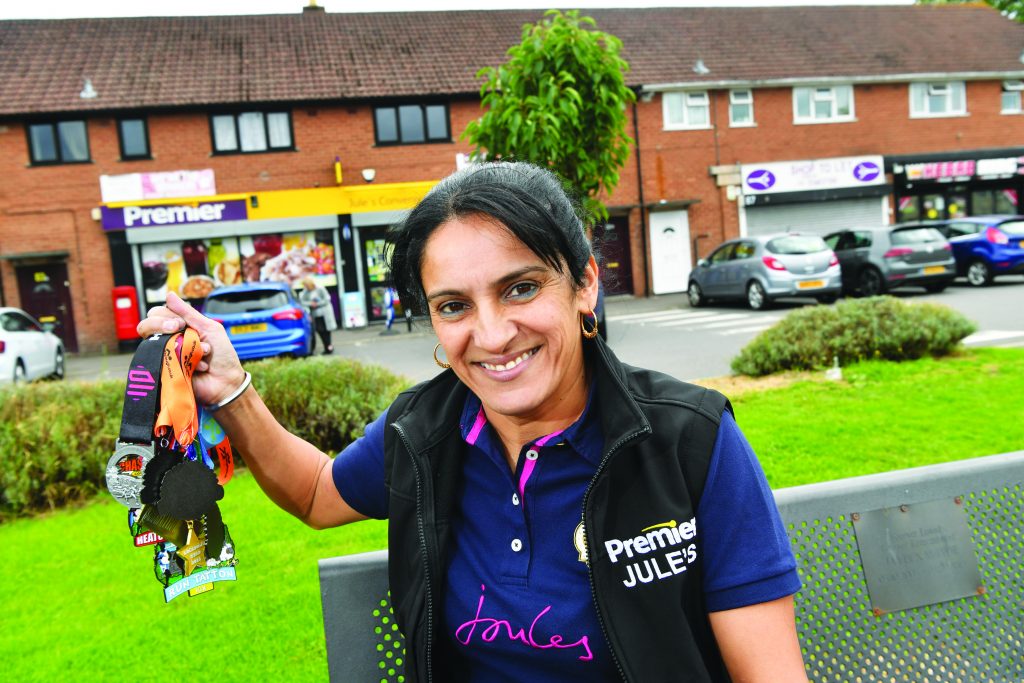But behind these statistics – which come from the latest Association of Convenience Stores Local Shop Report – lies a deep-rooted concern.
Attend any industry awards ceremony, conference, or charity event and it will largely be men sitting on the committees, making the speeches, and picking up the prizes. For women in independent retailing, the problem is often one of profile.
Glass ceiling
The reasons are often the same as the ones that create glass ceilings for women in other lines of work.
Mothers tend to take on the bulk of childcare responsibilities. In many retail concerns run by couples, wives assume a semi-domestic role, or take on day-to-day store management, while husbands become the face of the business in the community and beyond.
The fact there are few role models for women in the industry becomes an invisible barrier in itself.
Many female owners are reluctant to seek the spotlight, volunteer for organisations or make the most of networking opportunities with their peers because they do not see others like themselves doing the same.
Driving force
Julie Kaur, who collected an industry award this autumn for her contribution to community retailing, may be an exception.
Although she runs her business – Jule’s Convenience Store in Telford, Shropshire – with her husband Joey Duhra, she is its driving force. Her name is on the shop sign and she deals with suppliers and customers.
Duhra generally stays behind the scenes, managing the finances. Although outwardly confident, she admits attending industry gatherings where she is one of a few females can be “daunting”.
However, she urges women to strive to raise their profile. “Women have a lot to bring to retail – the ability to multi-task, their life skills and positivity,” she says. “They should not be afraid to show this away from their shops, where they are making such a big impact.”
Equal treatment
Kaur, who sits on several charity and advisory committees and is a district president of the NFRN trade body, believes women need to be more forthright. “Men are not always right,” she says. “You have to be strong-minded and sometimes a bit ruthless, while always being respectful to everyone you deal with – men and women.”
Leslie Francis runs a Spar store and post office with her husband Tim and agrees that women in retail often lack confidence to lead from the front.
In the 17 years the couple have run the outlet in the Hampshire village of Enham Alamein, she says she has insisted she be treated on equal terms with her spouse.
Francis believes that with their life experiences, women often “bring a different view to retailing” than men.
“We tend to be closer to the trends as mothers and homemakers, and more aware of generational needs,” she says. “We can be more flexible and understanding. Things are not always so black and white for us.”
Difficult choices
However, for Rachael Gosnay, the pressures of running a family business could mean choosing between remaining in the trade or having children – a dilemma she suspects few men in her position would face.
Aged 34, she regularly works more than 70 hours a week in her Saltburn-based Spar in North Yorkshire. “At some point, I expect to have to decide whether to have a family or stay running the business,” she admits.
Other women have had to make difficult career choices when deciding to enter the retail business. Brenda Daly was a teacher before she decided to join husband Martin when he took over his father’s Spar service station in Eglish, County Tyrone.
She describes the switch from classroom to convenience as “like jumping off a cliff edge”.
Domestic duties
The support she received from Henderson Wholesale’s store projects manager Sandra Belsaw was “invaluable” as she and her husband juggled 15-hour days and looking after four young children. “I appreciated having another woman around for her camaraderie and companionship,” says Daly.
Louise Humpington also transitioned from a professional career – as a lawyer – to launch her eco-friendly grocery chain, Grain & Sustain, in Fife, and has just opened her third branch. Humpington – who has three children under six – is “incredibly fortunate” to have a partner who shares domestic duties while working full-time, but she says not all women entrepreneurs are so lucky.
She also thinks mothers like her who want to start or expand retail businesses are less likely to be supported by banks than men. “People who don’t have full-time incomes or have taken career breaks are treated as more of a risk. And if I hadn’t had my legal background, it would have been considerablymore difficult to navigate the regulatory framework required to set up and run a business,” she says.
Networking events
For Humpington, interacting with other professionals – both within and outside the sector – has been vital. She says initiatives such as Woman Who networking events help women make connections and provide mentoring opportunities. She notices, however, that many women she encounters lack confidence in their own abilities.
“They are often prepared to take a side rather than lead role, and not encouraged to learn extra skills through training,” she says. “Often they don’t appreciate the transferability of their own skills. You need to break down the skillset of jobs you have done into components – whether it is attention to detail, customer service or time management – and adapt these to what you are doing now.”
Social media
Another organisation that helps women meet with peers and improve their business acumen is the 16-year-old Women in Business Network. According to joint managing director Najat Johnson, the initiative works by putting those who join in touch with fellow members who can provide aid with everything from social media to bookkeeping.
“Being a business owner, you are expected to have many skills and it can be isolating,” says Johnson. “We know women work differently – we are less aggressive, not so much about the hard sell, and can feel intimated in a mixed networking setting. Our meetings allow women to feel comfortable while tapping into a network of professionals.”
Providing support
In the wider grocery sector, a number of groups have sprung up to offer support and encouragement to female professionals. They include the Grocery Girls, a non-profit group founded in 2018 by Jo Whitfield, the chief executive of Co-op Food. Its aim is to “inspire and empower women into senior leadership, at all stages of their careers”.
Another body, Women in Wholesale, is “an educational networking programme designed to inspire, support and develop women of all levels” working in that part of the sector. Established in 2016, and with more than 700 members, it says women account for 47% of those working in wholesale and foodservice but only 17% of senior managers and directors.
Societal issue
Debbie Robinson, chief executive of Central England Co-op and until recently chair of the Association of Convenience Stores (ACS), thinks the independent sector lacks a similar forum for women.
“There is potential for somewhere for women to share ideas and support each other,” she says. “Supporting other women is crucial. If I am at an event, I try to talk to every woman in the room.”
Another industry leader, Louise Hoste, managing director of Spar UK and newly appointed ACS chair, admits the female psyche can hold back women from achieving their professional potential.
“Females tend to underplay themselves,” she says. “But this is a societal issue, rather than one specific to grocery or independent grocery.”
She maintains that self-belief is a key attribute for women when it comes to progressing their careers. “I’ve had to realise within myself that I can say yes to things, even when it’s easier to say no.
“Often, if you say yes, you can do it. I use it as a tactic for myself – if I say yes, then I have to get on with it,” she says.
Making progress
It is not always easy. Sunita Aggarwal found herself running a Spar store on her own after her husband died in April 2020. She admits she would previously have stayed in the background, in instances such as attending events with her husband.
“He would know everyone, but I didn’t because there were few females. I felt I would hold him back, even though I had been in the industry as long as him.”
However, she believes women in retail are making progress and can continue to raise their profile. “We just need to be more verbal and visible,” she says. “We need to turn up at these events to make friends and support one another.”
By Juliet Morrison
 Talking Retail Grocery and product news for independent retailers
Talking Retail Grocery and product news for independent retailers






